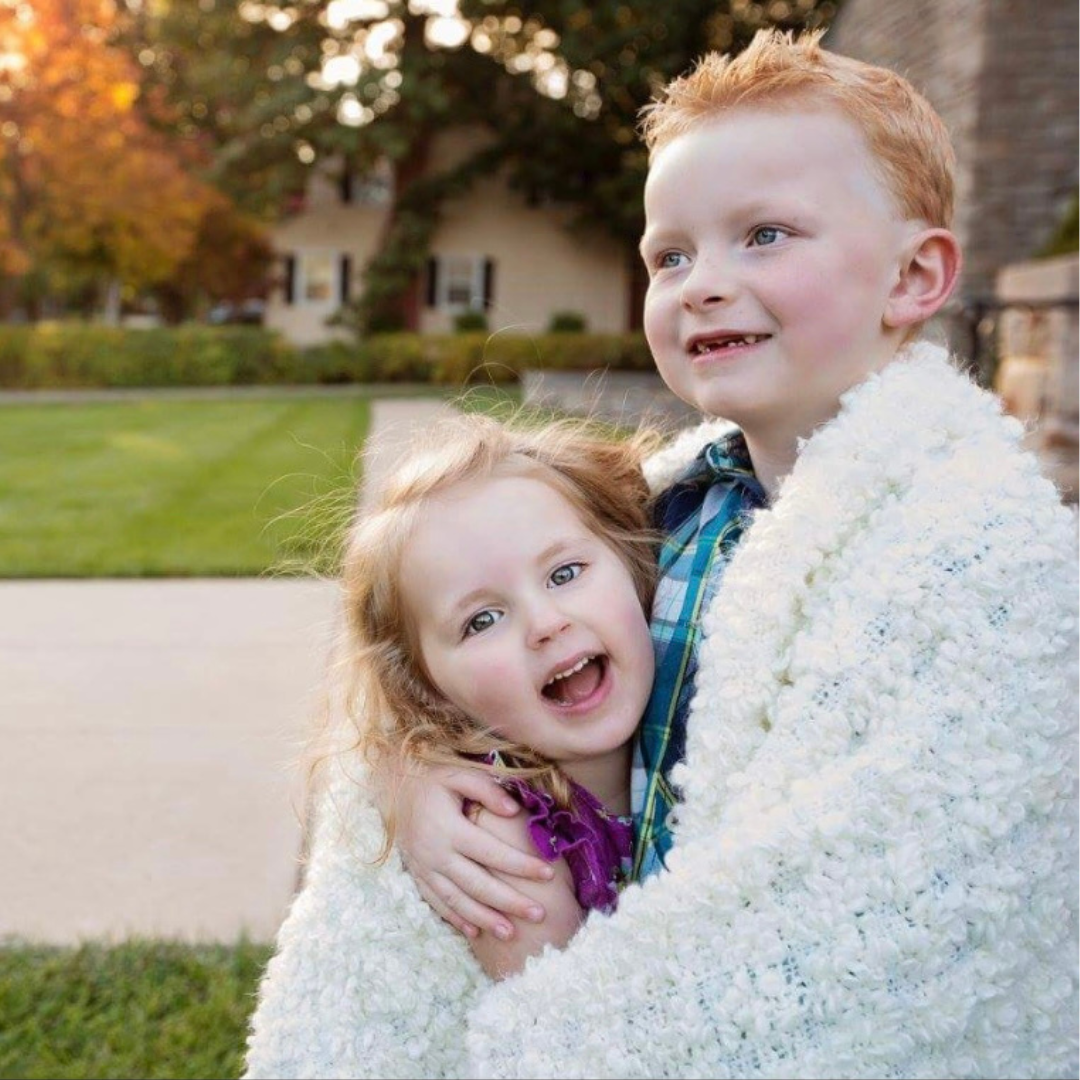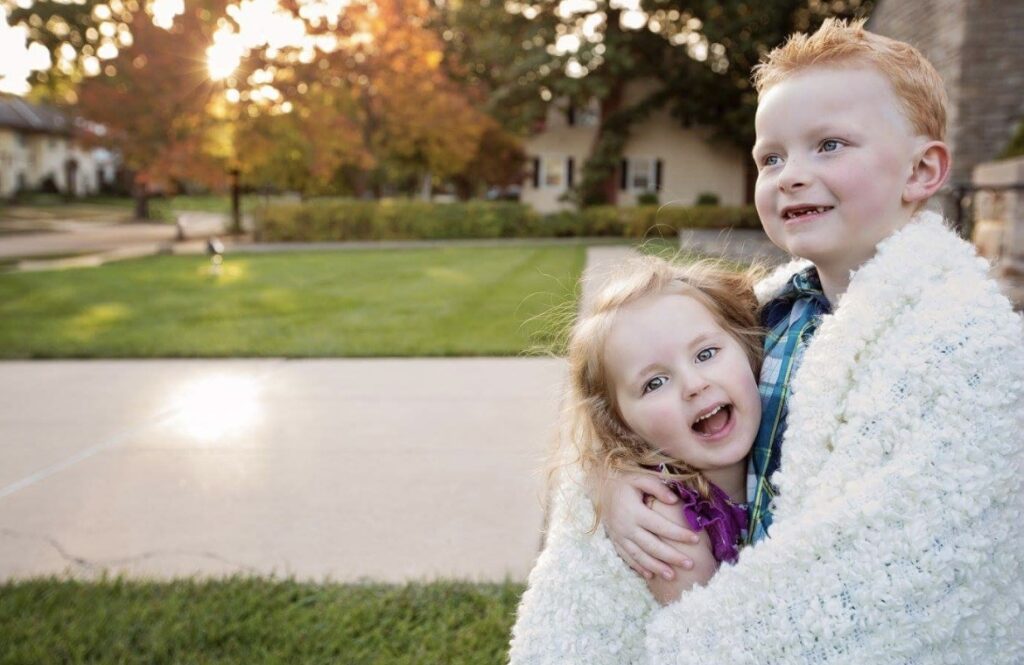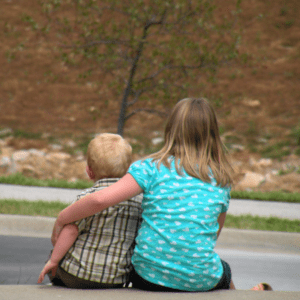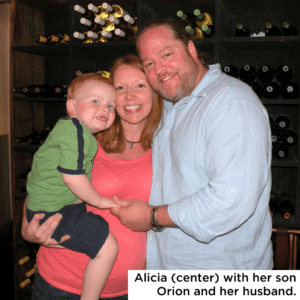“Everything Happens So Fast in Kinship Care”: An Unfiltered Look at One Kinship Caregiver’s Experience

10 September 2024

Guest Blog by Alicia Dentler
In 2012, my husband and I received a phone call that turned our lives upside down. Our two-and-a-half-year-old nephew, Orion, had been taken into protective custody, and we were asked if we would be willing to take him into our home for an undetermined amount of time. We, of course, said ‘yes’ and the following day went to pick him up from the agency office.
Overnight, we were thrust into the world of parenting and the child welfare system – court dates, case plans, attorneys, parental visits, daycare – and had to navigate intense emotions and complicated family dynamics. Just a few days earlier, we were discussing plans for my new career as a Marriage and Family Therapist, and now everything was put on hold. My husband’s home office was transformed into a bedroom for Orion, and our home was suddenly on display to make sure it was safe and adequate for a new resident.
During our home visit, we were asked questions and signed paperwork. We were told that we would be compensated six dollars a day to help provide for our nephew. We were informed that we could become a licensed home and receive a higher compensation rate, but we were so overwhelmed that we said no. Honestly, this whole transition was a blur – everything happens so fast in kinship care.
And then, a week after Orion moved in, we found out we were pregnant with our first child.
When most people find out they’re pregnant for the first time, they read books, decorate the nursery, and spend months preparing mentally, emotionally, and financially for the baby. When you become a traditional foster parent, you prepare by taking classes and determining what child might be the best fit for your home. We were not afforded either opportunity, and we did our best to make do with what we had.
I remember an early conversation with our caseworker in which they asked us, “Do you have a support system?” Our response to this commonplace question was, ‘Yes!’ We had lots of family and friends and a great church community. Fast-forward to today and the question I wish they had asked is, “Do you have anyone in your life who understands the unique complexities that come with raising a family member’s child who has experienced trauma?” To that question, I would have answered, ‘no.’
Finding a community of people who truly understand what it’s like to be a kinship caregiver is one of the most difficult aspects of the role. Families do not announce when they are raising a family member’s child, so many people may not even know their situation or the shame, uncertainty, and overwhelm they carry every day.
 Like many placements, the initial goal for our nephew was reintegration with his birth family. For months, we did our best to maintain a positive relationship with the birth parents, knowing that they felt cut off and that we were trying to keep their child from them. I felt terrible because I wanted to help them, but I didn’t know how, and I always worried that something might happen that would result in the state putting Orion in foster care with an unfamiliar home and family. After a year, parental rights were terminated, and we decided to adopt.
Like many placements, the initial goal for our nephew was reintegration with his birth family. For months, we did our best to maintain a positive relationship with the birth parents, knowing that they felt cut off and that we were trying to keep their child from them. I felt terrible because I wanted to help them, but I didn’t know how, and I always worried that something might happen that would result in the state putting Orion in foster care with an unfamiliar home and family. After a year, parental rights were terminated, and we decided to adopt.
While this decision felt new and scary, there were people along the way who helped us significantly. A friend from our church told us about a conference called “Empowered to Connect,” which helps caregivers learn about trauma, its impacts on brain development, and how to effectively parent children with a traumatic upbringing. Shortly after the conference, our son started struggling with big behaviors at school, and I reached out to a woman who I had met there named Jennifer Decker, the Director of Foster & Adoption Ministry at Westside Family Church in Lenexa, KS. She invited us to attend Network 1.27, a support group at the church with monthly meetings, and planned family activities for foster and adoptive – and kinship – families to connect. Westside also hosts an annual foster, adopt, and kinship caregiver RE Conference, which stands for Real Encouragement.
While these supports were extremely helpful, I saw a growing need for a support system specifically for kinship caregivers that could address the complicated family dynamics that occur. This led me to pursue a career in child welfare, where I have been for the past eight years.
As Clinical Utilization Specialist at Cornerstones of Care, I work with my team members to complete assessments with youth and their caregivers when the child enters DCF custody. Based on the results, we provide them with a list of recommendations for services and supports for each person in the foster care triad – children, birth parents, and caregivers. When working with children in kinship care, I use my experience and training to equip them with support services tailored to their unique needs.
I have learned so much from my experience as a kinship caregiver and working with kinship families, the most important being that every kinship family experience is different. Some kinship caregivers struggle with guilt and shame, which can prevent them from reaching out for support; others may assume they don’t need help because they have parented before, not realizing that the child has experienced trauma that requires them to parent differently. Kinship caregivers often struggle to know how to engage with the birth parents, how to set boundaries with family members, and how to become mom and dad to someone who is biologically their niece or nephew – especially when there are other children in the household.
Research shows that youth placed in kinship care fare better than those placed in foster care. They have better outcomes regarding academics, behavior, and mental and report a stronger sense of connectedness and belonging. While kinship care is more beneficial for youth, kinship families tend to struggle more with their mental heatlh and social and financial well-being than families not in kinship care situations, and that is important information we must act upon.
 When writing recommendations for kinship families, I always recommend they participate in the Kinship Origins and Kinship PATH trainings created by the Children’s Alliance of Kansas and facilitated in part by Cornerstones of Care. These trainings do a great job of explaining the child welfare process, court hearings, parenting a child who has experienced trauma, navigating difficult conversations, developing a support network, and so much more. The Kinship Origins training is self-paced and online; the Kinship PATH training is the follow-up training, which provides critical in-person support so caregivers can connect, share resources, and learn from each other.
When writing recommendations for kinship families, I always recommend they participate in the Kinship Origins and Kinship PATH trainings created by the Children’s Alliance of Kansas and facilitated in part by Cornerstones of Care. These trainings do a great job of explaining the child welfare process, court hearings, parenting a child who has experienced trauma, navigating difficult conversations, developing a support network, and so much more. The Kinship Origins training is self-paced and online; the Kinship PATH training is the follow-up training, which provides critical in-person support so caregivers can connect, share resources, and learn from each other.
In 2023, I took the leap and became a facilitator for Kinship PATH, following my passion for helping other kinship families on their complicated but beautiful journeys. It is an honor to walk alongside caregivers over several weeks as they bravely face the complexity and uncertainty in front of them. Currently, I am transitioning into a therapist role and am excited to continue to support youth and families in this way. My hope is that these youth and families would know and feel that they are not alone and that they have someone on their side.

